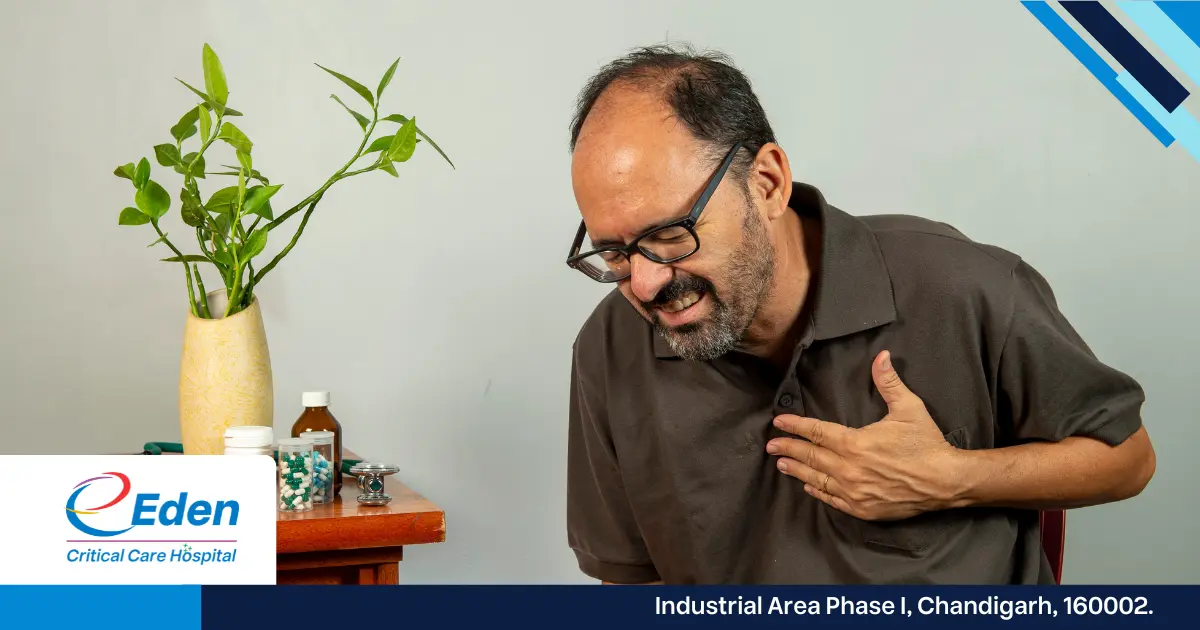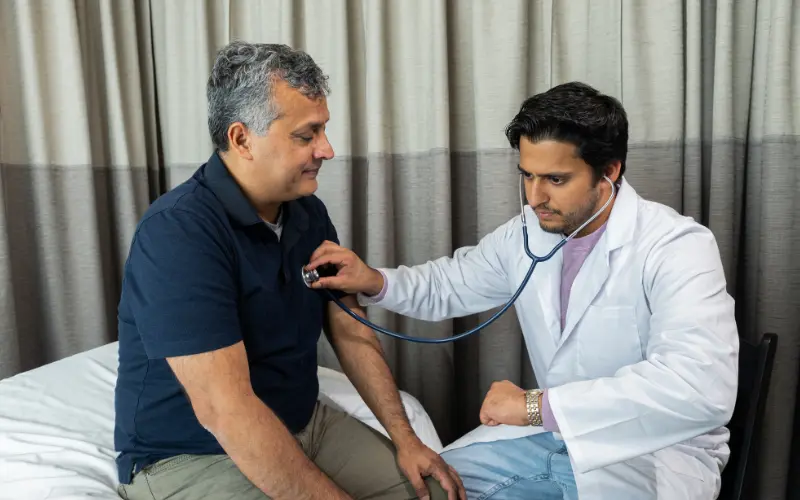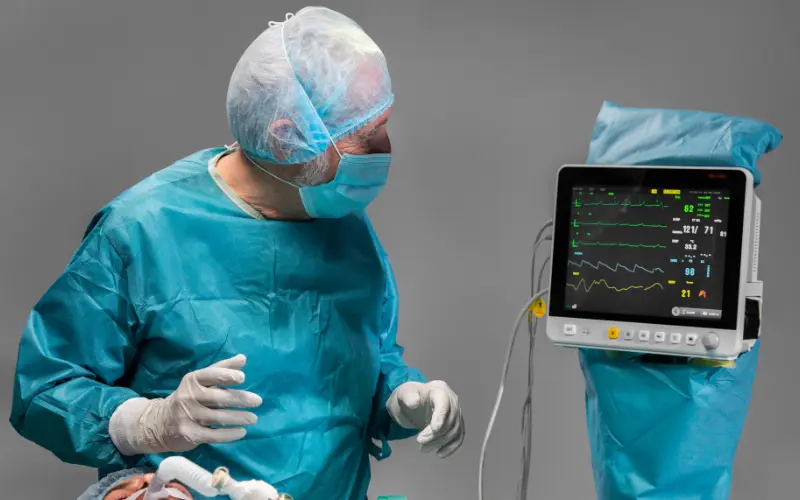Pacemaker Surgery in Chandigarh: 7 Life-Saving Tips!

So, your doctor just mentioned pacemaker surgery, and now your brain is doing backflips.
“Wait… a device in my chest? Is this serious? Can I still live a normal life? And how do I even choose the right hospital in Chandigarh for something this big?”
Take a breath. You’re not alone. Almost every patient I’ve met has had these exact same questions. And the truth is, most of them walked into surgery scared but came out with stronger hearts and more confidence in their decisions.
Pacemaker surgery can save your life. But what truly helps is knowing what to expect, which questions to ask, and how to prepare both your body and your mindset before the procedure.
In this blog, I’ll share 7 life-saving tips that every pacemaker patient should know.
No medical jargon, no scare tactics. Just clear and helpful advice based on real experiences from patients and doctors here in Chandigarh. Let’s get you ready for the surgery and for life afterward.
What is a Pacemaker and Why Might You Need One?

A pacemaker is a small medical device that helps your heart beat at a normal rhythm. It’s placed just under the skin, usually near your collarbone, and connected to your heart with tiny wires.
Think of it as your heart’s backup coach. If your heart slows down or skips a beat, the pacemaker steps in and tells it to get back on track.
Doctors usually recommend a pacemaker if you have:
- Bradycardia (a slow heartbeat)
- Heart block (a signal problem between the chambers of your heart)
- Fainting spells or fatigue linked to irregular heart rhythms
- Certain heart conditions that affect the electrical system
It’s not about making your heart stronger. It’s about keeping it steady. That rhythm matters more than you think, especially when it comes to daily activities like walking, sleeping, or even just standing up without feeling dizzy.
If your cardiologist has suggested a pacemaker, it means they’ve likely seen irregularities in your heartbeat that medication alone can’t fix. It’s a proactive step to prevent serious complications, including heart failure or stroke.
Types of Pacemakers You Should Know
Not all pacemakers are the same. Depending on your heart condition, your doctor will recommend a specific type that fits your needs best. Here’s a quick breakdown so you’re not left guessing during your consultation.
1. Single-Chamber Pacemaker
This one connects to just one chamber of your heart, usually the right atrium or right ventricle. It’s often used for people who simply need help regulating one part of their heart rhythm.
2. Dual-Chamber Pacemaker
As the name suggests, this device connects to two chambers — typically the right atrium and right ventricle. It helps coordinate the timing between them, making your heart beat more naturally.
3. Biventricular Pacemaker (CRT Device)
This is often recommended for patients with heart failure. It stimulates both the left and right ventricles to improve the heart’s pumping efficiency. You may also hear it called a cardiac resynchronization therapy (CRT) device.
Each type is chosen based on how your heart’s electrical system is functioning. You don’t have to decide this alone. Your cardiologist will run tests like an ECG, Holter monitor, or echocardiogram to figure out the best fit.
Before the Pacemaker Surgery: How to Prepare

Once your doctor confirms you need a pacemaker, the countdown to surgery begins. What you do before the procedure can make a significant difference in how smoothly everything goes.
Here’s how to get yourself ready physically, mentally, and emotionally.
1. Understand the Procedure
Knowing what’s coming helps reduce fear and anxiety.
- Ask your doctor how the surgery is performed
- Understand the type of pacemaker being used
- Clarify how long the procedure will take and what kind of anesthesia will be given
2. Review Your Medications
Some medicines may need to be stopped before surgery.
- Share a full list of your current medications with your doctor
- Mention all supplements, vitamins, or herbal products
- Follow your doctor’s advice on pausing or continuing any medicine
3. Complete Any Required Tests
Pre-surgery tests ensure your body is ready.
- You might need blood work, an ECG, or a chest X-ray
- Do not skip these tests as they are essential for safety
- Ask your hospital if reports need to be brought on the day of surgery
4. Eat Light the Day Before
Your stomach should be empty before surgery.
- Have a light dinner the night before
- Avoid eating or drinking anything after midnight
- Follow any fasting instructions provided by your doctor
5. Arrange Support for After Surgery
You’ll need someone to help you get home safely.
- Ask a friend or family member to drive you
- Have someone stay with you for the first 24 hours
- Keep essentials like water, snacks, and medications nearby at home
6. Prepare Mentally
A calm mind leads to a smoother recovery.
- Talk to others who have gone through the surgery
- Remind yourself that this procedure is common and safe
- Trust your medical team and focus on your healing
During the Surgery: What Actually Happens?

Pacemaker surgery is usually quick, low-risk, and often done without general anesthesia. Here’s what the actual procedure looks like, step by step.
1. You’ll Be Awake but Relaxed
Most pacemaker surgeries use local anesthesia.
- You’ll be awake but won’t feel pain
- A mild sedative may be given to help you relax
- The surgical area near your collarbone is numbed
2. A Small Cut Is Made
The incision is minimal and heals quickly.
- A small cut (2 to 3 inches) is made near the chest
- This is where the pacemaker will be placed
- No major stitches or deep cuts are involved
3. Wires Are Connected to Your Heart
These leads help the pacemaker monitor and correct your heartbeat.
- Thin wires are guided through a vein into your heart
- The doctor checks their position using X-ray guidance
- The wires are then attached to the pacemaker device
4. The Pacemaker Is Implanted Under the Skin
The device stays just beneath your skin for easy monitoring.
- The pacemaker is placed in a pocket under the skin
- It’s usually just below the collarbone
- The area is then stitched up and bandaged
5. The Device Is Tested Before You Leave
Your doctor makes sure everything works perfectly.
- The pacemaker settings are adjusted to suit your heartbeat
- Your heart’s response is tested immediately
- Everything is double-checked before you move to recovery
After the Surgery: Recovery Timeline & Lifestyle Tips

The recovery process after pacemaker surgery is generally quick; however, there are a few key things to keep in mind to ensure proper healing and avoid complications.
1. Hospital Stay is Usually Short
Most patients go home the same day or the next.
- You’ll be monitored for a few hours after surgery
- Doctors will check your heart rate and the incision site
- In most cases, you’re discharged within 24 hours
2. Take It Easy for the First Week
Your body needs time to adjust to the device.
- Avoid lifting anything heavy for about 7 to 10 days
- Limit arm movement on the side of the pacemaker
- Rest often and avoid overexertion
3. Watch for Signs of Infection
Early detection prevents bigger problems.
- Check for redness, swelling, or fluid near the incision
- Monitor for fever or unusual pain
- Call your doctor if anything feels off
4. Resume Normal Activities Gradually
Life returns to normal with a few precautions.
- Walking is encouraged after a few days
- Avoid driving until your doctor gives the green light
- Light household work is fine after the first week
5. Be Careful With Certain Electronics
Most electronics are safe, but a few need caution.
- Mobile phones should be kept at least 6 inches from the pacemaker
- Avoid standing too close to induction stoves or large speakers
- Always inform airport or hospital staff about your device
6. Follow-up is Crucial
Your pacemaker needs regular checkups.
- Schedule your first follow-up within a week
- Future checkups will be every 3 to 6 months
- Your doctor may adjust the settings based on your heart’s response
Life With a Pacemaker: What to Expect Long-Term

After recovery, most patients are surprised by how normal life feels with a pacemaker. In fact, many feel better than they did before the surgery.
1. You Can Live a Full, Active Life
The pacemaker is there to support your heart, not limit your lifestyle.
- You can return to walking, work, and even travel
- Many people feel more energetic and confident
- Most daily routines stay the same or improve
2. Daily Habits May Need Small Adjustments
A few changes can help protect the pacemaker and keep you comfortable.
- Avoid sleeping directly on the pacemaker side
- Be mindful when lifting or reaching with the same arm
- Keep an eye on the incision area for any unusual changes
3. Exercise is Still a Good Idea
Physical activity helps your heart and mental health, with a few precautions.
- Start with walking, light stretching, or cycling
- Avoid rough sports or anything that puts pressure on your chest
- Talk to your doctor before beginning any new workout routine
4. Be Cautious Around Certain Devices
Most electronics are safe, but some can interfere with your pacemaker.
- Keep your phone and earbuds at least six inches away from the device
- Don’t lean on shop security gates or stand too close to powerful speakers
- Let medical staff know you have a pacemaker before scans or treatments
5. Regular Checkups Are Important
Monitoring your device keeps it working properly for years.
- Your doctor will test the pacemaker’s settings and battery life
- Some devices allow for remote monitoring from home
- Most pacemakers last between seven to fifteen years
Why Eden Critical Care Hospital is Best for Pacemaker Surgery in Chandigarh

When it comes to something as important as your heart, choosing the right hospital makes all the difference. Eden Critical Care Hospital has become a trusted name in Chandigarh for heart procedures, especially pacemaker surgeries. Here’s why patients prefer Eden.
1. Experienced Cardiac Specialists
Your heart is in expert hands at Eden.
- Surgeries are performed by senior cardiologists and electrophysiologists
- The team is trained in the latest pacing technologies
- High success rates with personalized care for each patient
2. Advanced Operation Theatres
Modern equipment means safer and more precise surgeries.
- State-of-the-art cardiac cath lab and operation setups
- Continuous heart monitoring during and after the procedure
- Minimal incision techniques are used for faster recovery
3. Dedicated Post-Surgery Care
Recovery is just as important as surgery itself.
- Trained nurses and rehab staff monitor your progress
- Regular check-ins and support for at-home care
- Clear post-op instructions to ensure you recover confidently
4. Affordable, Transparent Packages
Quality doesn’t have to come with surprise costs.
- Clear pricing and no hidden charges
- EMI and insurance support available
- Consultation and follow-ups are patient-friendly
5. Trusted by Hundreds of Families in Chandigarh
Real stories speak louder than ads.
- Eden has helped countless patients regain their health and confidence
- Families appreciate the hospital’s ethical approach and clear communication
- You’re not just a patient here, you’re treated like family
Frequently Asked Questions
Is pacemaker surgery risky?
It’s a safe and common procedure with a high success rate. Most patients recover well with minimal complications.
How long does a pacemaker last?
Depending on the type and usage, pacemakers usually last between 7 to 15 years before needing a battery replacement.
Can I use phones or other electronic devices after surgery?
Yes, most electronics are safe. Just keep phones at least six inches away from your pacemaker.
How soon can I return to normal activities?
Most patients resume light activities within a few days and return to work or regular routines within 1 to 2 weeks.
What’s the cost of pacemaker surgery in Chandigarh?
Costs vary based on the type of pacemaker and hospital. Eden Critical Care Hospital offers affordable, transparent packages and EMI options.
Conclusion
Getting a pacemaker is a big decision, but it doesn’t have to be a scary one. With the right knowledge and the right hospital by your side, you’re not just preparing for surgery, you’re choosing a better, healthier life.
Whether you’re still exploring your options or already scheduled for the procedure, remember this: pacemaker surgery is one of the most effective and safe heart procedures available today. And with expert care from a hospital like Eden Critical Care, your heart is in the right hands.
If you or your loved one is considering pacemaker surgery in Chandigarh, reach out to Eden. Book a consultation, ask your questions, and take that first step toward a healthier tomorrow.


